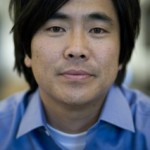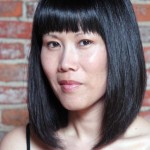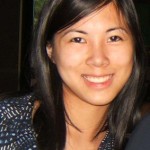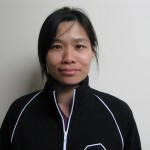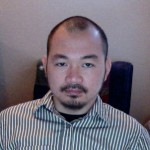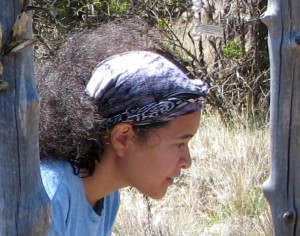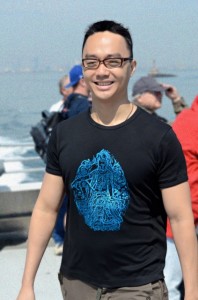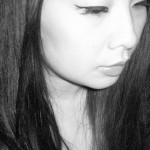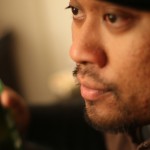“Race and the Avant-Garde: Experimental and Asian American Poetry since 1965” – Gwee Li Sui interviews Timothy Yu
 Race and the Avant-Garde: Experimental and Asian American Poetry since 1965
Race and the Avant-Garde: Experimental and Asian American Poetry since 1965
by Timothy Yu
Stanford University Press, 2009
Gwee. Your book Race and the Avant-Garde, published in 2009, gives voice to the racial complications in the poetic avant-garde of America since the 1960s. You strongly suggest that its various formations have never been defined by mere abstract aesthetic principles. How do you describe the gap between white experimental poetry and Asian-American poetry and the development of this gap?
Yu. Part of my point is to question the existence of such a gap–or perhaps more precisely, to historicize the emergence of this gap. I argue in the book that at the time of its emergence in the 1970s, Asian American poetry was highly experimental. Asian American poets had as part of their challenge the task of defining what an Asian American poetic voice would sound like. So they experimented with different forms, styles, and influences. And I also argue that white experimental poets of the same period–particularly those associated with language writing–were quite self-conscious about their racial position. So while these two groups of writers may not have sounded the same, I’m suggesting that they shared similar impulses at the outset.
The idea of a gap between Asian American and (white) experimental writing seems to have emerged somewhat later, when both modes of writing had become more institutionalized, and the idea that Asian American writing was primarily autobiographical and narrative had gotten quite entrenched. In the book, I quote Ron Silliman stating that writers of color primarily want to “have their stories told,” while white progressive writers seek to deconstruct their own speaking positions (i.e., write “experimental” work). The perception of such a gap has persisted. What I tried to show is that this gap has a history and that it isn’t something essential about Asian American or experimental writing.
Gwee. Theresa Hak Kyung Cha is an enigmatic figure for you. Her ethnic identity used to be suppressed in white avant-garde discourse while her experimentalism was overlooked by Asian-American criticism. How is she central to your argument?
Yu. Cha is fascinating to me because, as an avant-garde artist, she was originally not seen as fitting into Asian American literature at all! I quote a number of Asian American critics saying that they initially hated the book and couldn’t identify with it. Later, in the 1990s, of course, Cha’s Dictee, her best known work published in 1982, was embraced by Asian American readers, who hailed it as marking a new moment of hybridity and experimentation in Asian America. But in my view, many still couldn’t quite come to terms with those more abstract or avant-garde elements of the text, instead trying to link it to more traditional narratives of Asian American identity. Cha’s work seems to have this unique ability to disrupt our critical categories, and the reception of her work shows us the histories of categories like “experimental” and “Asian American.”
Gwee. You point to how black experimentalists are able to absorb and deploy a rhetoric of dissent in a manner that escapes Asian-American writers. Does this trajectory not fall back on a measure of cultural stereotyping: eg. Asians are more practical-minded, have an inassimilable, ancient culture, etc.?
Yu. My point isn’t that Asian Americans don’t have a history of dissent and resistance; they do, of course. But many Americans who saw themselves as progressive or radical in the post-1960s era tended to look to the African American example of struggle, particularly in the civil rights movement. I cite a number of examples of Asian American activists quite consciously taking African American activism as their model. Remember that “Asian American” was an invention of this activist era; Asian Americans as a pan-ethnic coalition didn’t exist before that. Of course, white radicals often felt the same anxiety with regard to the African American example; for example, I cite Tom Hayden saying of African American activists, “We should speak their revolutionary language without mocking it.”
Gwee. There is a word you appear to resist using directly in your book: racism. Is there a reason for this? What do you think the scope for such a charge in the various relationships you observe is?
Yu. That’s an interesting observation. I’ve heard at least a few people say of the book that I should have been far less hesitant to label particular attitudes or statements as racist, and that I went too easy on certain figures in this regard. I even read one review that said I embraced a “post-racial” viewpoint! Well, I didn’t consciously try to avoid talking about racism–obviously the entire Asian American political project is an anti-racist one. But if I did avoid labeling certain writers or works racist, it was probably because I wanted to contextualize and historicize rather than to issue an easy judgment. I was more interested in the fact that for Silliman and many other white experimental writers, there was an active conversation going on about race, behind the work and often within it as well–even if some elements of that conversation might create some discomfort as we read it.
It may be true that racism isn’t a major focus in my discussion of Asian American poetry, perhaps because I’m looking at the constructive dialogue happening within Asian American writing (during the 1970s particularly) about the invention of an Asian American voice. Of course responding to racism is a part of that, but it was also a matter of how Asian Americans would address each other in literature and form a literary culture, perhaps distinct from that of the (racist) mainstream.
Gwee. The term “Asian-American” is itself broad, compounding multiple distinct traditions, journeys, and private struggles. Does an insistence on the singularity of dislocation, alienation, and adaption not prove ironically restrictive in some way?
Yu. I certainly wouldn’t insist on the singularity of Asian American experience. I hope one thing I did in recovering some of the history of Asian American poetry was showing how much struggle there has been over its definition and how capacious it has been as a category. Anyone who thinks that Asian American writing is restricted to a limited number of themes probably simply hasn’t read very much Asian American writing. To be fair, though, even most Asian Americans are unaware of the breadth of work that has been done by Asian American writers. Asian American critics have often been as guilty as anyone about returning to the same narratives and the same few canonical works. What I find most interesting in Asian American poetry is its interest in opening aesthetic and thematic questions rather than limiting them.
Gwee. What do you see as the challenges to Asian-American writing today?
Yu. In a lot of ways, Asian American writing is more vibrant than it has ever been. We now have several generations of prominent writers who can serve as models and mentors, a growing number of organizations and publications devoted to Asian American writing, and a truly astonishing number and range of young Asian American writers. What I think leads a lot of younger writers to still feel that being an Asian American writer is a struggle is a continuing sense of isolation–a sense that they are working on their own. One thing that I think can help in this respect is simply more knowledge–an awareness that there is a powerful tradition of Asian American writing out there, and that they can find in it support for almost anything they want to do. Universities are still doing a pretty poor job of informing young writers about this tradition; although the situation has certainly improved, I still find that most young writers are hungry for more knowledge about Asian American writing, past and present. I’d like to hope that as a critic and teacher, I can provide some help to younger writers who are seeking to understand the tradition from which their work emerges.
Gwee: Thank you for this opportunity to engage you and for your insightful answers.
Gwee Li Sui is a literary critic, a poet, and a graphic artist. He wrote Singapore’s first comic-book novel, Myth of the Stone, in 1993 and published a volume of humorous verse, Who Wants to Buy a Book of Poems?, in 1998. A familiar name in Singapore’s literary scene, he has written essays on a range of cultural subjects as well as edited Sharing Borders: Studies in Contemporary Singaporean-Malaysian Literature II (2009), Telltale: Eleven Stories (2010), and Man/Born/Free: Writings on the Human Spirit from Singapore (2011).



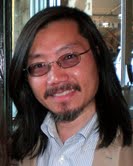
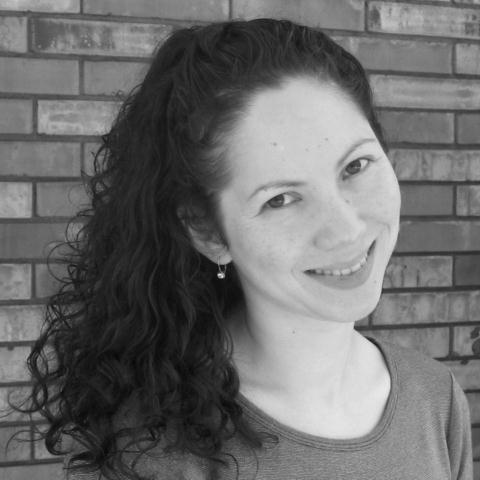 Kim-An Lieberman is a writer of Vietnamese and Jewish American descent, born in Rhode Island and raised in the Pacific Northwest. She holds a Ph.D. in English from the University of California, Berkeley. Her poetry collection, Breaking the Map, won the 2008 First Book Award from Blue Begonia Press.
Kim-An Lieberman is a writer of Vietnamese and Jewish American descent, born in Rhode Island and raised in the Pacific Northwest. She holds a Ph.D. in English from the University of California, Berkeley. Her poetry collection, Breaking the Map, won the 2008 First Book Award from Blue Begonia Press.
